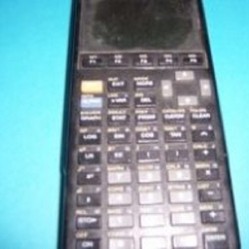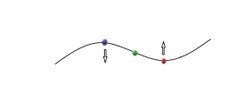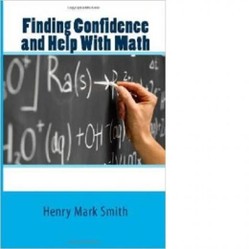Calculators and school brings up a question, should they be allowed, and if so to what extent? It seems to be a clear enough question, but the answer is not easy at all. As a college mathematics professor I have been in many discussions with colleagues, some who feel we should maximize the use of calculators and some who would prohibit them completely. And college is just one level, the question must be first asked in the early years of school, whether it involves a school or a homeschooling.

Calculators and School
The question of if, and to what extent, calculators should be used in school is complex, and both sides have legitimate points.
Persuasive Arguments in Favor of Calculators
Mathematics is sometimes the difficult subject that looms between a student and success. Using a calculator can alleviate the difficulties, and it is natural to ask, “What problem can this cause?” After all, the student can then do arithmetic with ease, and the answers are likely to be correct. So, if the problem can be solved, is not that enough? This is a reasonable question to ask, but alas the answer cannot be a simple yes.
Persuasive Argument against Use of Calculators
Mathematics is not just about doing arithmetic, it is a development of logical thought. This development starts with arithmetic, and really comes about in courses like algebra, when one must set out with a sequence of steps designed to get to a solution. Being able to follow a logical thought patter is a skill that can be brought into other areas, and is incredibly important. Calculators inhibit that process at the early levels, so it can make algebra daunting later.
Skills Do Not Just Apply to Numbers
I also teach physics, and often have students unable to manipulate units such as (m/s)/(m/s2). When I tell the students there is a fraction divided by a fraction, so use the rule of inverting the denominator and multiplying I get blank stares. These are the students who were taught only to use a calculator, so when there are symbols instead of numbers they are lost.
An Actual Problem
I once tutored a high school student in physics. She knew the theory quite well, yet was getting failing grades on her tests. After some time we got to her next test, and she seemed ready. But, again she failed the test. It was only after I observed that she could not divide by 2, nor by 10, mentally that I could see how calculator dependent she was. Then came a problem like 90/(2X5). She typed in 90 / 2 X 5 and got 225 instead of 9. She did not use the parentheses.
Once I pointed out the problem the girl started getting high grades. Then she told me that there were about a dozen students from her elementary school and the high school teachers did not know how to teach any of them mathematics. One teacher who did not understand the calculator destroyed an entire group of students.
If a Calculator Is Allowed, Which One?
We must, at least in college, ask that question. Graphing calculators have the ability to solve equations, and even systems of equations. These do more than addition, subtraction, multiplication, and division. They can even do a limited amount of calculus.
Beyond graphing calculators are symbolic calculators which can give exact answers using such symbols at pi and the radical symbol we use for roots. Symbolic calculators can factor algebraic expressions and give answers with the variable x shown. Basically, these calculators can handle most algebra and calculus problems.
We must then ask how much does the student need to know. If the student is going into science there may be a day when the calculator cannot get the answer, so the thought skill will be needed.
Preventing Cheating
Powerful graphing and symbolic calculators have memory. They also have an alphabet available on a shifted keyboard. The capability of allowing the typing in a cheat sheet is a problem. And one brand has infrared linking, allowing a student to send screenshots across the classroom to other students.
In Advanced Courses
Once a student gets to an advanced course the situation changes. The student has already proven mathematical prowess and with the calculator and the drudgery of basic calculations is not considered the focus. In those cases powerful calculators are invaluable, since they reduce careless errors while allowing the student to concentrate on the greater depth of the mathematics.
The Ambiguous Answer
If you are implementing the use of calculators in the early grades ask if they will be always allowed. Notice the ability to facilitate cheating might well preclude having those students allowed to continue to use calculators later. It is not just a matter of making problem solving easier, it also goes to the question of thought skill development.
While there are valid arguments against overuse of calculators, some college professors argue that they allow students to get to even more complex problems, so their use should be maximized.
The question of if, and to what extent, calculators should be used has been the subject of many acrimonious debates among college professors, so there is no real definitive answer.
Use for Checking Work
A calculator can be an excellent tool for Checking work. You can find calculators at Staples.
This article contains links to affiliate programs from some or all of Zazzle, Viglink, and Ebay through Viglink, and Adsense advertising. These must use cookies to allow for proper crediting.
You might also like
Understanding Calculus: A Simplified Approach to DerivativesFinding derivatives in calculus has many practical uses, and can be an invalu...
Helping Children with Arithmetic: The Early GradesOnline classes were not good for education, especially arithmetic classes. N...





 The Linear Equation and Related Equations and Inequalitieson 08/15/2024
The Linear Equation and Related Equations and Inequalitieson 08/15/2024
 Understanding Calculus: A Simplified Approach to Derivativeson 08/05/2024
Understanding Calculus: A Simplified Approach to Derivativeson 08/05/2024
 Limits: Vital Building Blocks of Calculuson 08/01/2024
Limits: Vital Building Blocks of Calculuson 08/01/2024
 Mardi Gras Collectibleson 02/02/2023
Mardi Gras Collectibleson 02/02/2023



Comments